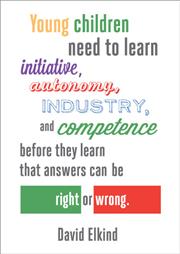Employee Child Care - Gallian Center
Page Navigation
Virginia Gallian Child Development Center Learning Program
-
Our curriculum is developmentally appropriate based on Texas Early Childhood Guidelines. Hands-on activities enhance growth and development in social, emotional, physical, and cognitive areas. The center provides learning opportunities in just about everything your child does throughout the day.

Children are messy little scientists! They learn best through play that emerges from their ideas, and allows them to test their concepts through creative thinking.
Children practice and reinforce their learning in numerous ways during play. For example, in playing with blocks children may build tall structures, add ramps, and experiment with how changing the number of blocks makes a car move faster. They are learning basic physics, and their learning is retained longer because it is meaningful to them. Play provides an opportunity for learning that cannot be achieved through completing a worksheet or memorizing data.
When children are allowed to play, they learn how to interact with their peers and negotiate to find mutually agreeable solutions. They learn how to work together to solve a problem, instead of relying on an adult to tell them what the solution is. Most importantly, they learn how to resolve conflicts with their peers and adults in a respectful manner, developing vital interpersonal skills which will serve them well throughout their life.
The teacher’s role in a child’s play is to scaffold children’s learning by adding new experiences to the learning environment based on the children’s interests.
The teacher supports the child’s play by using new vocabulary, mirroring their play, and using open-ended questions to expand their thinking. For example, the teacher may join the child’s block play, and say, “Wow!” Look at that skyscraper you built! There are skyscrapers in downtown Dallas, have you ever seen them?” Depending on how the child answers, the teacher may then add books about skyscrapers to the block area, or talk about what skyscrapers are built out of. If the child shows great interest in skyscrapers, this may become an area that is studied until they find a new area to explore. Although the teacher may have introduced the new word to the children, they lead where the play goes next. They may also say, “It’s not a skyscraper, it’s a mountain!” At that point, the teacher may ask open-ended questions to discover what materials or books she can add to the block area to extend their play.
Our teachers develop the curriculum based on individual observations and assessments of each child. These assessments are used to determine the weekly lesson plans for the whole class and also to help develop individual curriculum goals for each child. Teachers plan opportunities for each child to work on these goals through emergent-based themes.
Children should be allowed to be children. When we allow children to play, they learn how to think creatively. When they are faced with a problem, they are able to create solutions that may have never been considered before. Play provides rich learning opportunities and leads to children’s success and self-esteem. This is how future innovators and leaders are developed. This is how we can make a difference in the world, one child at a time.
Each day your child will participate in circle time where the class and teacher come together for such things as story time, key concept review, music movement, weather discussion and more. During circle time, children learn to express their ideas and discover their world independently. In addition to circle time, learning centers throughout the classroom provide countless educational opportunities. No matter which area captures a child’s interest on a particular day, they are developing important skills.
Teachers develop Learning Prescriptions and Online Learning Portfolios to track each child’s development. A weekly review of the lesson is available for parents in the classroom, and through the classroom website. Parents are encouraged to be involved as much as they can, and provide ideas for parents to support their child's learning goals at home.

